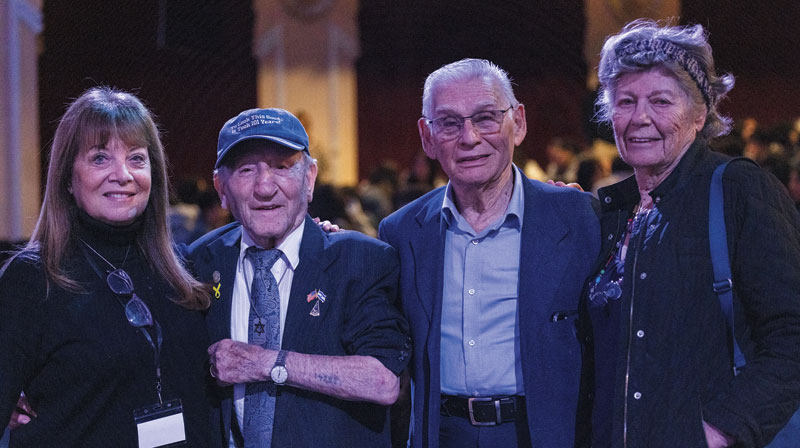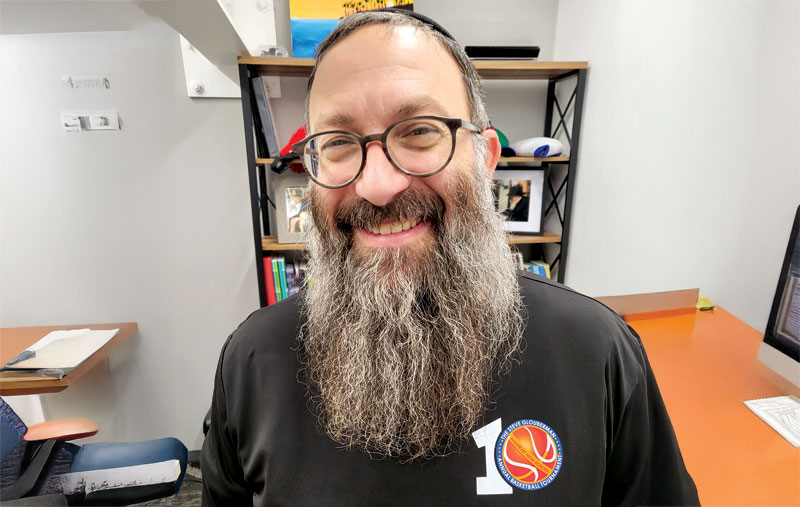In an excruciating sequence in writer-director Damien Chazelle’s “Whiplash,” 19-year-old Andrew Neyman (Miles Teller), an ambitious young drummer, frenetically performs for his sadistically abusive teacher. Andrew’s hands are bleeding, his sweat flying from every pore, as the instructor, Terence Fletcher (J.K. Simmons) throws pieces of the drum kit across the room and screams into Andrew’s face: “You cocks—-r! … You worthless Hymie f–k!”
Fletcher’s method is to ferociously berate his musicians in the hope that at least one of them might be pushed to achieve greatness under the pressure — no matter the collateral damage that ensues as the vast majority of his young charges are spiritually destroyed along the way. His arsenal includes insults that are homophobic, misogynistic, ethnic, and, in Andrew’s case, anti-Semitic, even though no other mention of the drummer’s heritage occurs throughout the film (one hint is that his father is portrayed by the recognizably Jewish actor Paul Reiser). Chazelle said he made the character nominally Jewish in honor of the many Jewish jazz legends, such as bandleader Benny Goodman and drummer Buddy Rich.
“But I wanted to keep Andrew’s Jewishness very subtle, so that the only person who would remark on it would be Fletcher,” Chazelle, 30, said recently during an interview at a coffee bar near his home in Venice. “Fletcher is operating from a playbook of hatred to essentially break down the players in his band room. And, beyond that, I wanted to make it clear that he is an equal-opportunity offender. The only demographic he does not explicitly go after is the demographic he owes his music to, which would be African-American.”
“Whiplash” is Chazelle’s second feature film, adapted from a short of the same name that won the 2013 award in its category at the Sundance Film Festival. The full-length version went on to win the grand jury prize at Sundance the following year, and now the drama has been nominated for five Academy Awards, including best picture and an adapted screenplay nod for Chazelle. The writer-director’s Hollywood dance card also is now full, with new projects in the works including an MGM-style musical, “La La Land,” starring Teller and Emma Watson.
Despite his wunderkind status, Chazelle in person is preternaturally boyish, adorably awkward and slightly self-deprecating, wearing jeans and a T-shirt and sporting bitten fingernails.
He laughed as he described what he called “my very weird religious upbringing” in Princeton, N.J. Both of Chazelle’s parents are Catholic, however when they grew dissatisfied with his education at a conservative church Sunday school, they enrolled him in Hebrew school at a liberal synagogue instead. Over the next four years, Chazelle said, “I had that period of my life where I was very, very into Hebrew and the Old Testament, and then I went with my class to Israel when we were in the sixth grade. I don’t think they even knew I wasn’t Jewish; I was, like, ‘passing,’ ” he added with another laugh. And then Chazelle promptly launched into the first stanza of a Hebrew prayer to demonstrate his prowess with the language, apologizing when he forgot the rest of the words.

It was the filmmaker’s own traumatic experience as a drummer in the award-winning, competitive Princeton High School jazz band that inspired “Whiplash,” he said. “My overall emotion during those years was just fear,” he recalled. “My teacher scared the hell out of me. He would scream and curse and insult people, or would kick musicians out of the band. Even the looks he would give us, and the constant starting and stopping or searching out people who were out of tune. I remember literally having to play just this one downbeat over and over again for about 20 minutes in front of the entire band. … And when I saw the [war movie] ‘Full Metal Jacket,’ I thought, ‘My God, someone put my band experience on film.’ ”
Desperate to earn his teacher’s approval, Chazelle would lock himself in his basement, practicing for six to eight hours a day. His hands constantly bled and blistered: “I’d have to run water over them and the blood would just stain my drumsticks,” Chazelle said. “I’d be wrapping Band-Aids over my hands and then Band-Aids over the Band-Aids.”
His anxiety was so acute that he lost sleep, suffered from nausea and was unable to eat before rehearsals. “I was utterly obsessed with jazz drumming for four years; it was both joy and agony, and I wanted to tap into that mindset for the film.”
Chazelle eventually quit music to take up film at Harvard University, and he didn’t start writing “Whiplash” until a decade after his fraught high school experience. He said his motivation was neither catharsis nor revenge — his teacher had died years before — but rather his vexation with another film project. That one was a complex, ambitious screenplay he thought he had “nailed,” but “people were telling me, ‘Yeah, this isn’t so great,’ ” he recalled. “And I was so thrown for a loop, so unmoored and depressed that I thought, I’m just going to write something lean and mean, small and focused. I’m going to write about what happened to me — it’s going to be about a jazz drummer who wants to be great and his terrifying teacher. I banged out a rough first draft in 10 days, very much in the spirit of frustration.”
The character of Fletcher in “Whiplash” is far more extreme than Chazelle’s own late teacher: “I wanted there to be certain moral dilemmas in the script, but I didn’t want one of those dilemmas to be, ‘Is this guy abusive?’ I wanted to make it very clear from the beginning that he was,” Chazelle said.
“The ethical question becomes: Do Fletcher’s goals justify his means? And at what cost [is] greatness? I wanted the movie to be very blatant about what those costs are, so I deliberately made it a very cruel film.”
Chazelle’s only note to Simmons — who is nominated in the best supporting actor category — was, “When he screams and explodes, it had to be almost like he was physically transforming into a monster, a gargoyle, a beast or demon,” the filmmaker said. “I didn’t want to see a human being in those moments.”
For the fictional Andrew Neyman, the obsession with becoming one of the jazz greats leads him to becoming essentially another Fletcher, and behaving in a callous and unforgivably brutal manner with his father and would-be girlfriend.
“I’ve always felt that the movie’s ending is the saddest ‘happy’ ending ever,” Chazelle said. “You’ve got this seeming victory in terms of Andrew’s triumphant jazz solo at [Carnegie Hall], but really you are witnessing the death of a soul, someone truly going to the dark side. He’s a person who might eventually leave an impact [musically], but whom I imagine might die at 34 of a drug overdose.
During the ultimately tortuously complex solo drum performance, the character grimaces as all his veins appear to pop; essentially he looks like he is on the verge of a heart attack. “I was really trying to push it to that ‘Red Shoes’ kind of place, where you worry he is going to physically die,” Chazelle said. “And I think a part of him does die in that solo.”
While Chazelle said he absolutely does not condone Fletcher’s teaching tactics, his feelings for his own band instructor are far more complex. Even though the filmmaker still has nightmares that put him “back in the same old high school dread,” he said, he “burst into tears” upon learning that his teacher had died of cancer when he was a freshman at Harvard.
“When I look back I don’t feel entirely negative about my band experience,” he explained. “While a lot of it was really unpleasant, it did prove to be the most creatively informative few years of my life — and as an artist in general. It gave me a sense of discipline and perseverance that I apply to my work today.”
It also made Chazelle hyper sensitive about not screaming at his cast and crew on the set. “I feel that the best work comes from when people feel free to explore,” he said. “It’s when they feel comfortable and safe.”






















 More news and opinions than at a Shabbat dinner, right in your inbox.
More news and opinions than at a Shabbat dinner, right in your inbox.